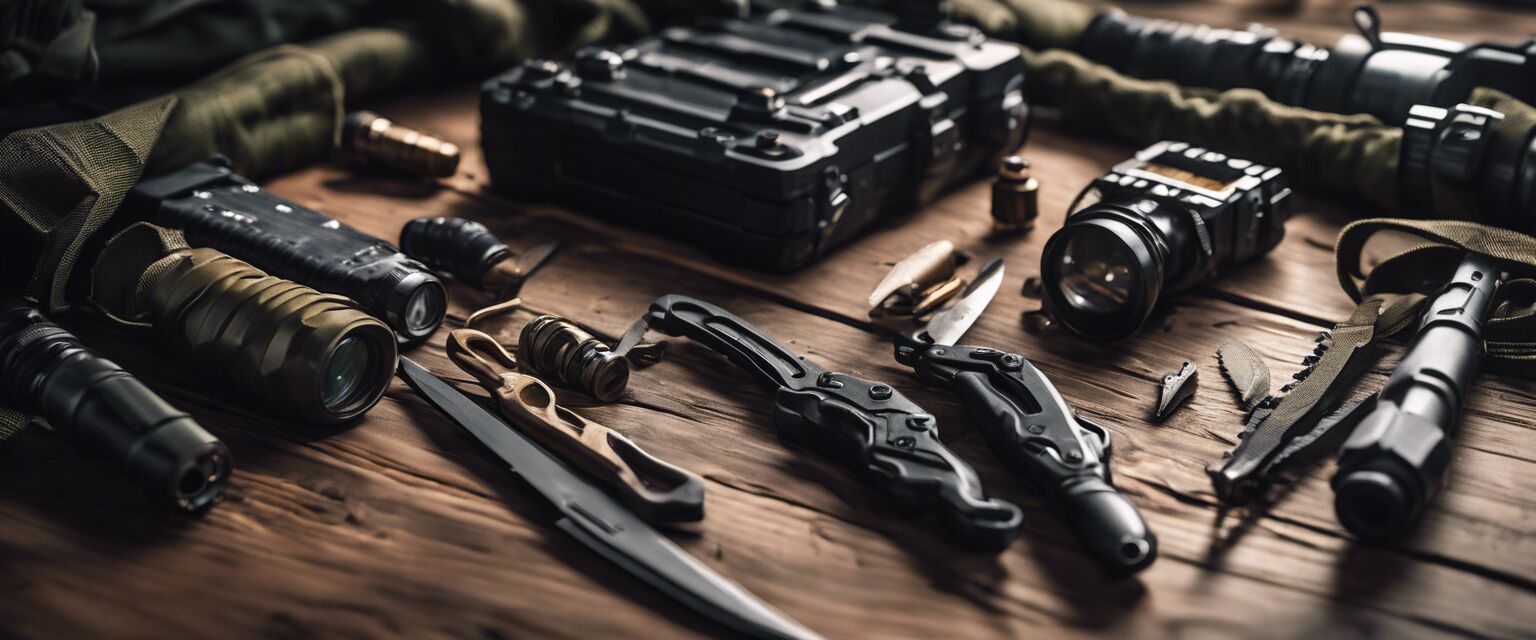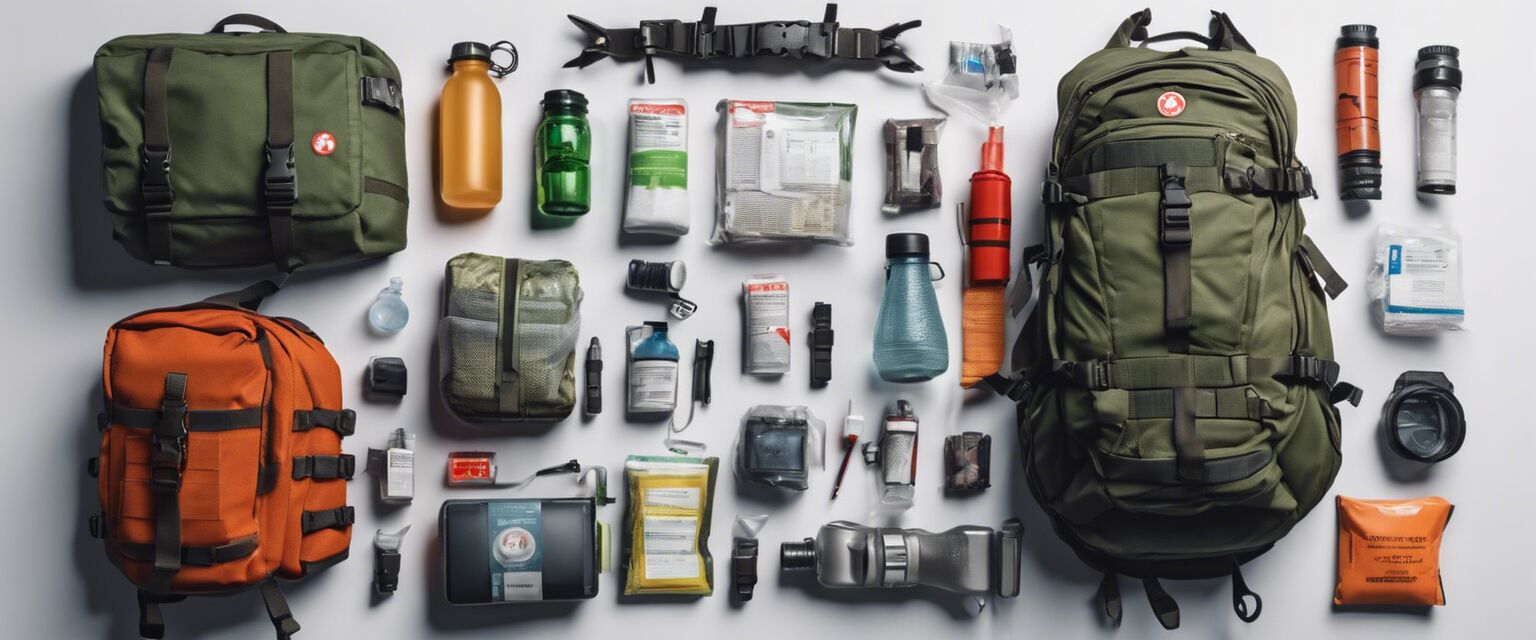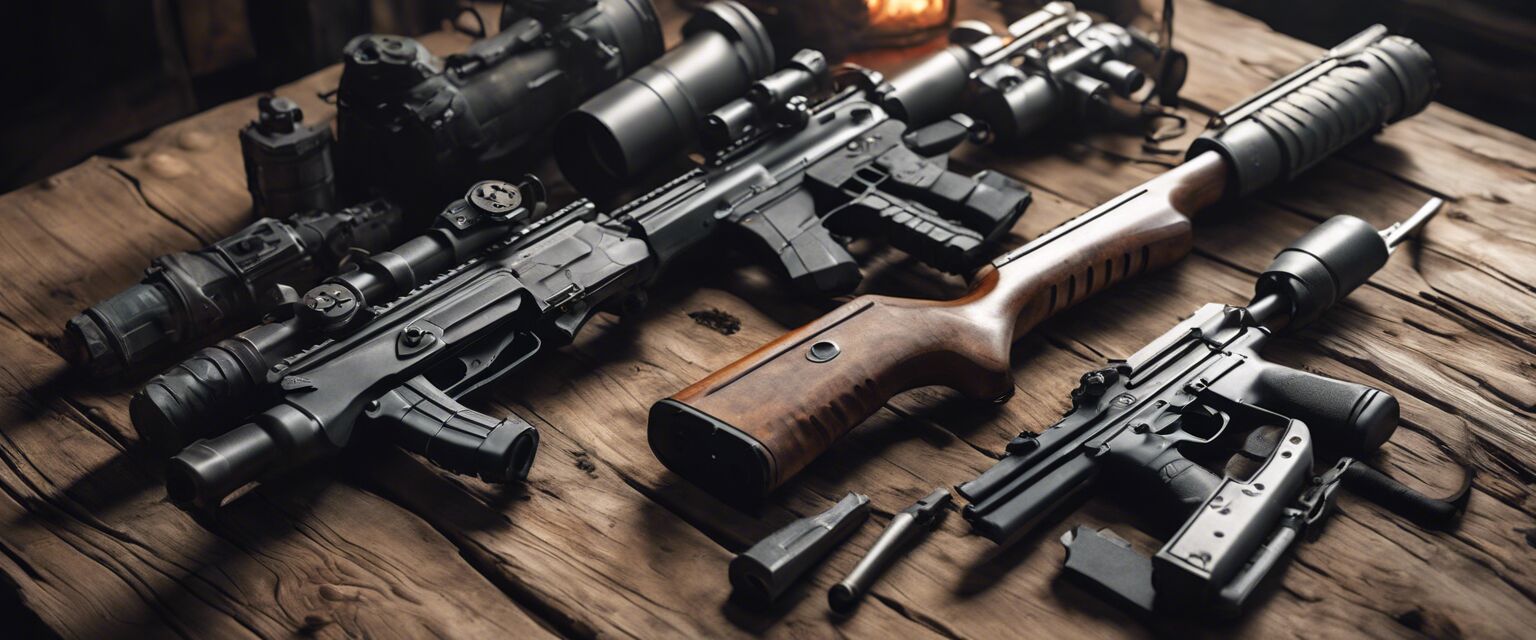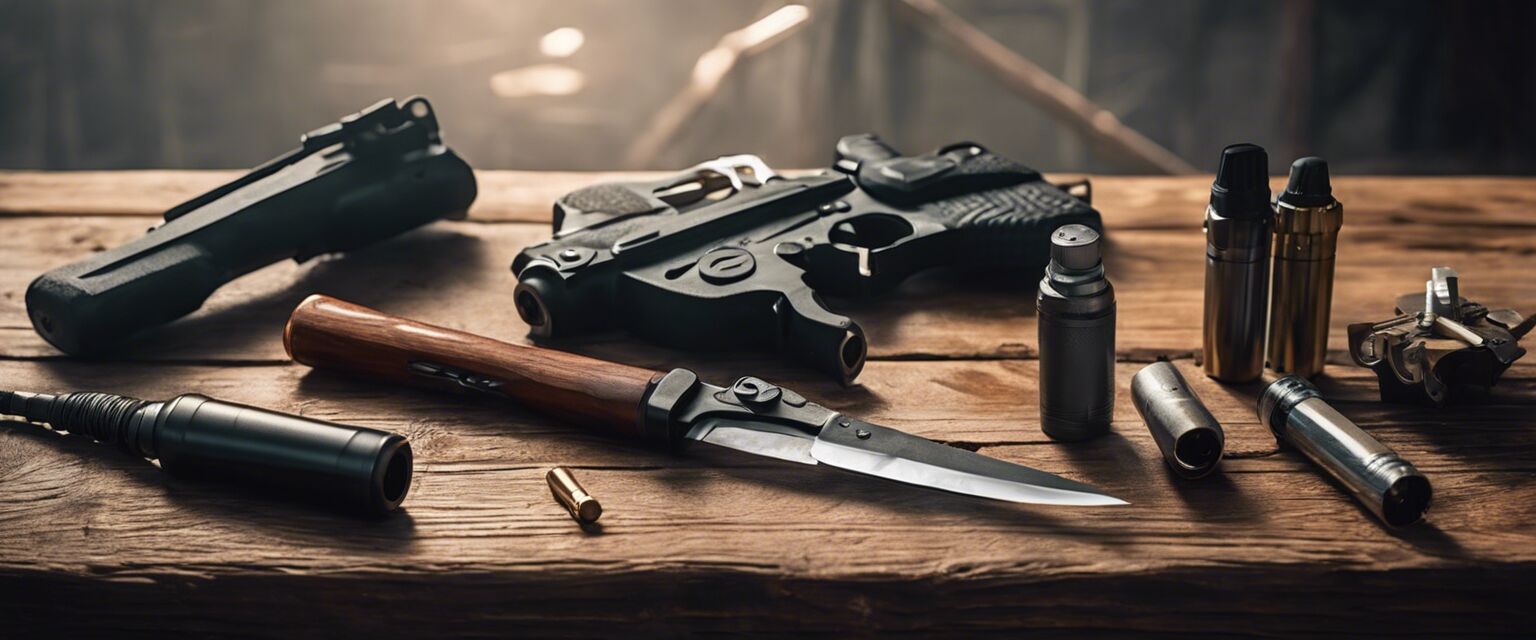
Self-Defense Tools: Effective Weapons for Personal Protection
When it comes to personal safety, it's essential to be prepared for any situation. Self-defense tools can provide an added layer of protection and give you the confidence to defend yourself in a dangerous encounter. In this article, we'll explore the most effective self-defense tools and strategies to help you stay safe.
Key Takeaways
- Choosing the right self-defense tool depends on personal preference, skill level, and local laws.
- It's essential to understand the legal implications of carrying a self-defense tool.
- Combining self-defense tools with awareness and avoidance techniques is key to staying safe.
Types of Self-Defense Tools
There are many types of self-defense tools available, each with its own advantages and disadvantages. Here are some of the most popular options:
| Tool | Description | Pros | Cons |
|---|---|---|---|
| Pepper Spray | A chemical irritant that causes temporary blindness and discomfort. | Easy to use, effective at a distance. | Can be affected by wind, may not be effective against multiple attackers. |
| Knives | A bladed weapon that can be used for close combat. | Effective in close quarters, can be used for slashing and stabbing. | Requires skill and training, may be illegal in some areas. |
| Batons | A blunt instrument used for striking. | Effective for close combat, can be used to disarm opponents. | May not be effective against multiple attackers, requires skill and training. |
| Stun Guns | An electronic device that delivers a high-voltage shock. | Effective at close range, can incapacitate an attacker. | May not be effective against multiple attackers, requires battery maintenance. |
Legal Considerations
Before carrying a self-defense tool, it's essential to understand the legal implications of doing so. Laws regarding self-defense tools vary by state and country, so it's crucial to research the laws in your area.
Some states have specific laws regarding the types of self-defense tools that can be carried, while others have restrictions on how they can be used. It's also important to consider the potential consequences of using a self-defense tool, including legal and moral implications.

Combining Self-Defense Tools with Awareness and Avoidance
While self-defense tools can be effective, they should be used in conjunction with awareness and avoidance techniques. Here are some tips to help you stay safe:
- Avoid walking alone at night or in isolated areas.
- Be aware of your surroundings and trust your instincts.
- Take a self-defense class to learn effective techniques.
- Stay alert and avoid distractions while walking or driving.
Conclusion
Self-defense tools can be an effective way to protect yourself, but it's essential to choose the right tool for your needs and understand the legal implications of carrying one. By combining self-defense tools with awareness and avoidance techniques, you can stay safe and confident in any situation.
Pros
- Effective way to protect yourself
- Can be used in a variety of situations
- Can provide a sense of confidence and security
Cons
- May not be legal in all areas
- Requires skill and training to use effectively
- Can have moral and legal implications
Remember, self-defense tools are just one part of a comprehensive personal safety plan. By staying aware, avoiding dangerous situations, and knowing how to defend yourself, you can stay safe and confident in any situation.
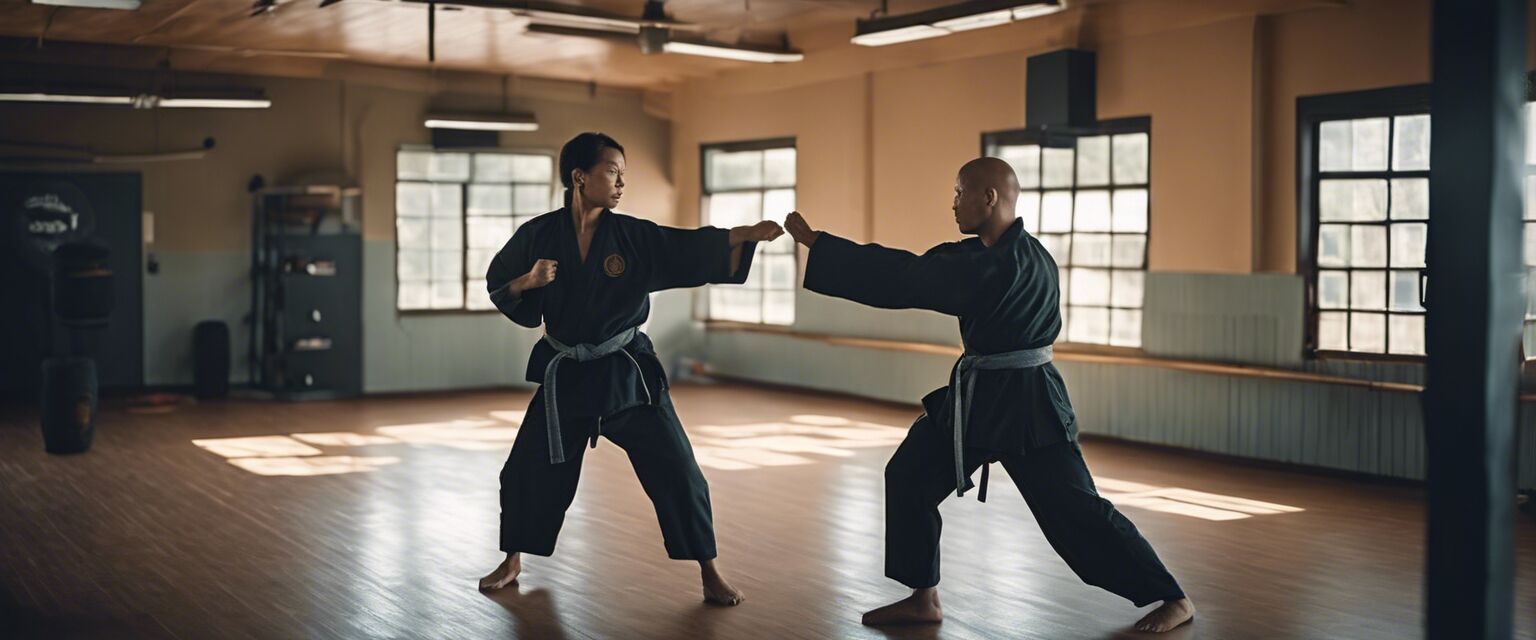
If you're interested in learning more about self-defense tools and techniques, check out our Knives and Multi-Tools categories for more information.
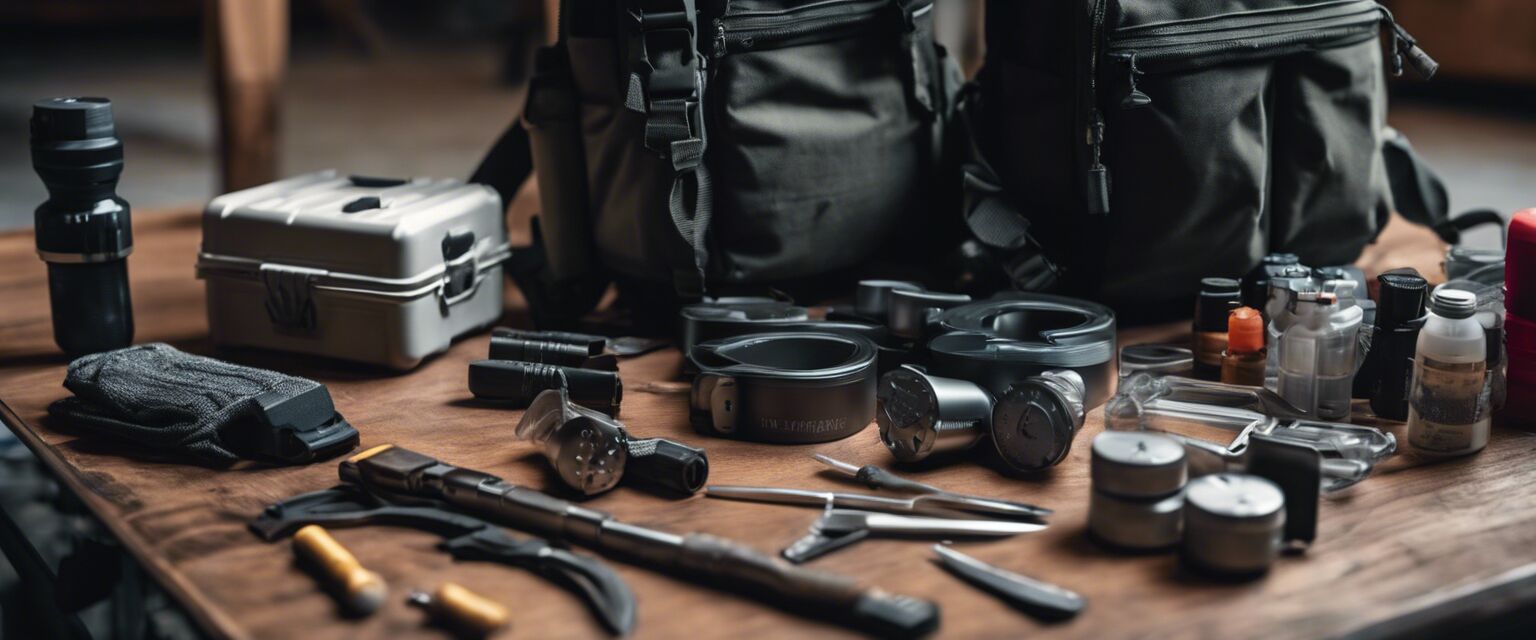
Stay prepared and stay safe with our selection of self-defense tools and resources. Check out our Navigation Tools and Shelter Equipment categories for more information on how to stay safe in any situation.
